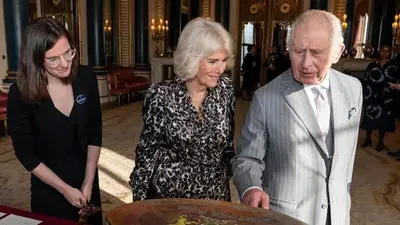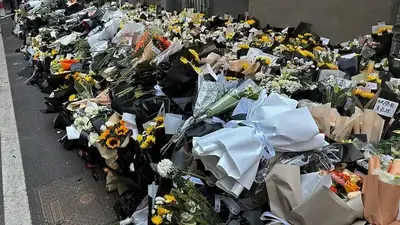World News
Netanyahu government: West Bank settlements top priority
JERUSALEM -- Benjamin Netanyahu’s incoming hard-line government put West Bank settlement expansion at the top of its list of priorities on Wednesday, a day before it's set to be sworn into office.
Netanyahu's Likud party released the new government's policy guidelines, the first of which is that it will “advance and develop settlement in all parts of the land of Israel — in the Galilee, Negev, Golan Heights, and Judea and Samaria” — the Biblical names for the West Bank.
The commitment could put the new government on a collision course with its closest allies, including the United States, which opposes settlement construction on occupied territories.
Israel captured the West Bank in 1967 along with the Gaza Strip and east Jerusalem. The Palestinians seek the West Bank as the heartland of a future independent state. In the decades since, Israel has constructed dozens of Jewish settlements there that are now home to around 500,000 Israelis living alongside around 2.5 million Palestinians.
Most of the international community considers Israel’s West Bank settlements illegal and an obstacle to peace with the Palestinians.
Netanyahu’s new government — the most religious and hard-line in Israel’s history — is made up of ultra-Orthodox parties, an ultranationalist religious faction and his Likud party. It is to be sworn in on Thursday.
Several of Netanyahu’s key allies, including most of the Religious Zionism party, are ultranationalist West Bank settlers.
On Wednesday, incoming finance minister Bezalel Smotrich said in an op-ed published by the Wall Street Journal that there would be no “changing the political or legal status” of the West Bank, running contrary to years of advocating annexation of the entire territory.
He leveled criticism at the “feckless Military government” that manages civilian affairs for Israeli settlers, including himself. Smotrich is set to assume control over the Military government in the occupied West Bank under his second role — a newly created position as a minister in the Defense Ministry.
Netanyahu is returning to power after he was ousted from office last year after serving as prime minister from 2009 to 2021. He will take office while on trial for allegedly accepting bribes, breach of trust and fraud, charges he denies.
Netanyahu’s partners are seeking widespread policy reforms that could alienate large swaths of the Israeli public, raise tensions with the Palestinians, and put the country on a collision course with the United States and American Jewry.
The Biden administration has said it strongly opposes settlement expansion and has rebuked the Israeli government for it in the past.
Earlier on Wednesday, Israel’s figurehead president expressed “deep concern” about the incoming government and its positions on LGBTQ rights, racism and the country’s Arab minority in a rare meeting called with Itamar Ben-Gvir, one of the coalition's most radical members.
President Isaac Herzog met with Ben-Gvir, head of the Jewish Power faction and heir to the outlawed politician Meir Kahane, after members of his party called for the legalization of discrimination against LGBTQ people based on religious belief.
Herzog’s office said the president urged Ben-Gvir to “calm the stormy winds and to be attentive to and internalize the criticism” about the incoming government’s stance on LGBTQ issues, Palestinian citizens of Israel, and a bill to remove a ban on politicians supporting racism and terrorism from serving in the Knesset, Israel’s parliament.
The government platform also mentioned that the loosely defined rules governing holy sites, including Jerusalem’s flashpoint shrine known to Jews as the Temple Mount and to Muslims as the Al-Aqsa Mosque compound, would remain the same.
Ben-Gvir and other Religious Zionism politicians had called for the “status quo” to be changed to allow Jewish prayer at the site, a move that risked inflaming tensions with the Palestinians. The status of the site is the emotional epicenter of the decades-long Israeli-Palestinian conflict.
-
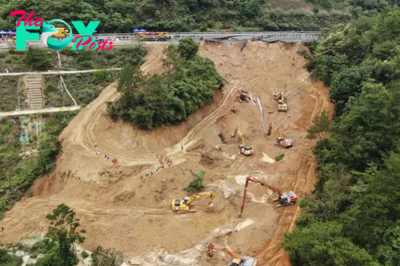
 World News1h ago
World News1h agoDeath Toll Reaches at Least 48, Search Continues in Southern China Highway Collapse
-

 World News1h ago
World News1h agoHow Kate Middleton is Honoring Princess Charlotte’s Birthday
-
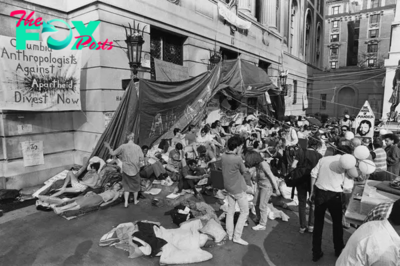
 World News7h ago
World News7h agoColumbia’s Relationship With Student Protesters Has Long Been Fraught
-
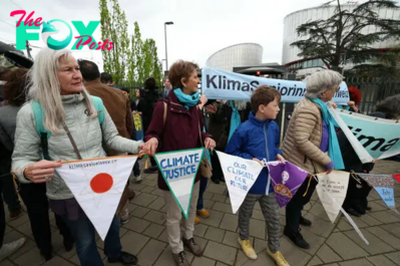
 World News7h ago
World News7h agoHow a Group of Elderly Swiss Women Charted a New Path for Climate Legislation
-

 World News14h ago
World News14h agoHow the U.S. Can Win the New Cold War
-

 World News20h ago
World News20h agoTwo Men Charged With Cutting Down Famous 150-Year-Old Tree Near Hadrian’s Wall in England
-
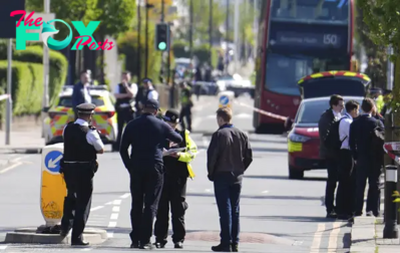
 World News1d ago
World News1d agoSword-Wielding Man Kills a 14-Year Old Boy and Injures 4 others in London
-
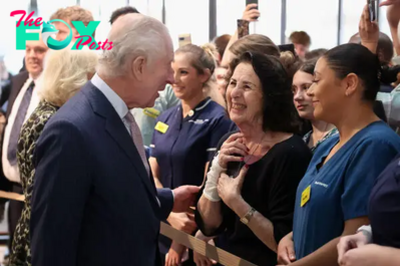
 World News1d ago
World News1d agoKing Charles Holds Hands With Cancer Patients in First Public Outing Since His Own Diagnosis








